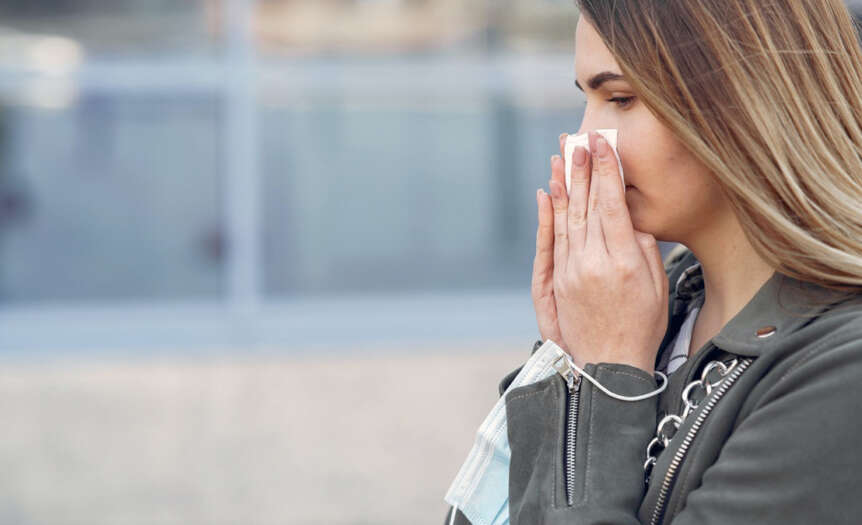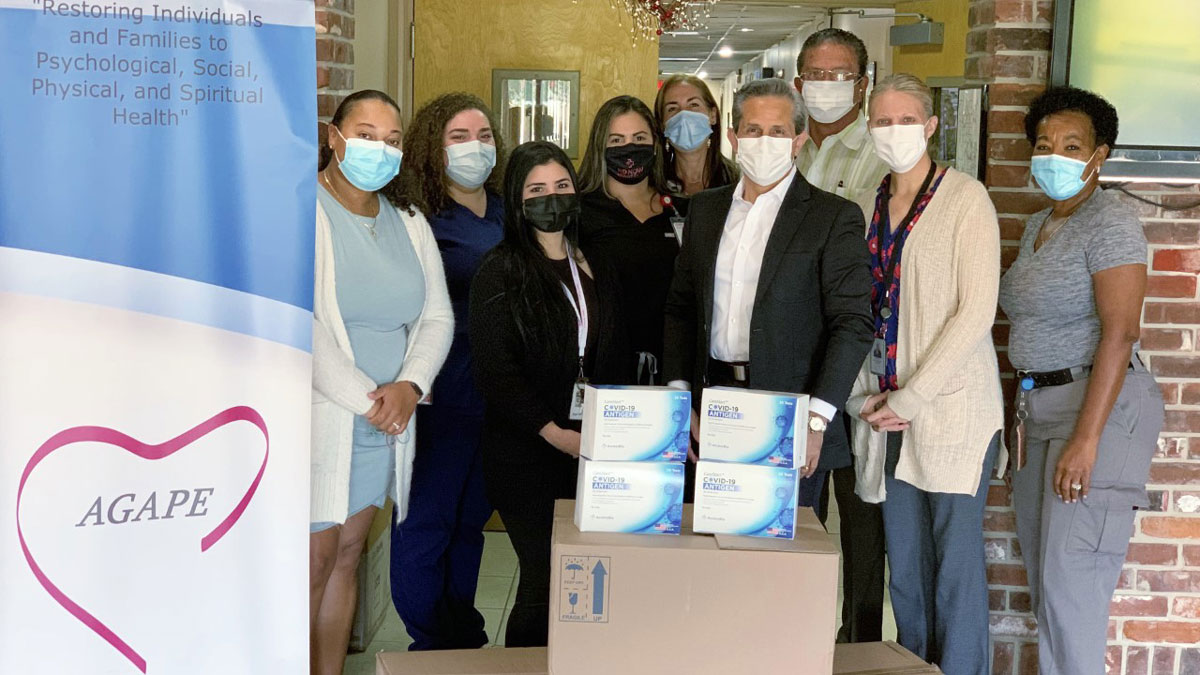Experiencing a sneeze, cough or throat tickle may be more nerve-wracking these days as we watch another rise in COVID-19 cases fueled by the BA.2 variant. Before worry sets in, remember that spring is the time of year for seasonal allergies, which affect close to 50 million Americans each year.
Allergies may linger for months in the spring season. If you feel symptomatic, the time of year may be a good indicator that you may have allergies. COVID-19 symptoms typically progress more rapidly over a shorter period of time, appearing 2 to 14 days after possible exposure.
Another indicator for allergies is that over-the-counter antihistamines or steroid nasal sprays are helping you feel better. There is no current evidence that shows allergy sufferers are at an increased risk of contracting COVID-19.
For more information on the symptoms you may be experiencing, consider using a COVID-19 symptom checker. You also can learn more about your symptoms by contacting your doctor or health-care provider.
To help you determine if your symptoms are the result of COVID-19 or allergies, it may be best to look at the hallmark symptoms of each.
COVID-19
COVID-19 is a viral respiratory illness that spreads through droplets released into the air when an infected person coughs, sneezes or talks. The most common COVID-19 symptoms include:
- Fever
- Cough
- Shortness of breath
- Fatigue
Other symptoms may include:
- Aches
- Nasal congestion or runny nose
- Sore throat
- Diarrhea
- Nausea
- Loss of taste or smell
The Centers for Disease Control and Prevention says COVID-19 symptoms that require immediate medical attention include:
- Trouble breathing
- Persistent pain or pressure in the chest
- New confusion or inability to rouse
- Bluish lips or face
If you believe you have any of the severe COVID-19 symptoms listed, contact your doctor. If you have been exposed to COVID-19 or have COVID-19 symptoms, call your health care provider. They may recommend you take an at-home, over-the-counter COVID-19 test.
Allergies
Allergies occur when a person’s immune system reacts to a foreign substance, such as pollen, pet dander or certain foods. While fever is a common symptom of COVID-19, it’s not often associated with allergies. The CDC notes if you don’t have a fever, loss of taste or smell or trouble breathing, allergies are the more likely culprit, if you’re not feeling well. Itchy or watery eyes and sneezing are more common in seasonal allergies than with COVID-19. Allergy symptoms may include:
- Itchy eyes
- Itchy nose
- Sneezing
- Runny congested nose
- Sore throat or cough associated with post-nasal drip














 Deering Estate
Deering Estate
 Massage Envy South Miami
Massage Envy South Miami
 Calla Blow Dry
Calla Blow Dry
 My Derma Clinic
My Derma Clinic
 Sushi Maki
Sushi Maki
 Sports Grill
Sports Grill
 The Healthy Kitchen
The Healthy Kitchen
 Golden Rule Seafood
Golden Rule Seafood
 Malanga Cuban Café
Malanga Cuban Café

 Kathleen Ballard
Kathleen Ballard
 Panter, Panter & Sampedro
Panter, Panter & Sampedro
 Vintage Liquors
Vintage Liquors
 The Dog from Ipanema
The Dog from Ipanema
 Rubinstein Family Chiropractic
Rubinstein Family Chiropractic
 Your Pet’s Best
Your Pet’s Best
 Indigo Republic
Indigo Republic




 ATR Luxury Homes
ATR Luxury Homes


 2112 Design Studio
2112 Design Studio
 Hamilton Fox & Company
Hamilton Fox & Company
 Creative Design Services
Creative Design Services
 Best Pest Professionals
Best Pest Professionals
 HD Tree Services
HD Tree Services
 Trinity Air Conditioning Company
Trinity Air Conditioning Company
 Cisca Construction & Development
Cisca Construction & Development
 Mosquito Joe
Mosquito Joe
 Cutler Bay Solar Solutions
Cutler Bay Solar Solutions


 Miami Royal Ballet & Dance
Miami Royal Ballet & Dance
 Christopher Columbus
Christopher Columbus
 Pineview Preschools
Pineview Preschools
 Westminster
Westminster
 Carrollton
Carrollton
 Lil’ Jungle
Lil’ Jungle
 Frost Science Museum
Frost Science Museum
 Palmer Trinity School
Palmer Trinity School
 South Florida Music
South Florida Music
 Pinecrest Orthodontics
Pinecrest Orthodontics
 Dr. Bob Pediatric Dentist
Dr. Bob Pediatric Dentist
 d.pediatrics
d.pediatrics
 South Miami Women’s Health
South Miami Women’s Health

 The Spot Barbershop
The Spot Barbershop
 My Derma Clinic
My Derma Clinic




 Miami Dance Project
Miami Dance Project

 Rubinstein Family Chiropractic
Rubinstein Family Chiropractic
 Indigo Republic
Indigo Republic

 Safes Universe
Safes Universe
 Vintage Liquors
Vintage Liquors
 Evenings Delight
Evenings Delight





 Atchana’s Homegrown Thai
Atchana’s Homegrown Thai
 Baptist Health South Florida
Baptist Health South Florida

 Laser Eye Center of Miami
Laser Eye Center of Miami
 Visiting Angels
Visiting Angels
 OpusCare of South Florida
OpusCare of South Florida

 Your Pet’s Best
Your Pet’s Best





 HD Tree Services
HD Tree Services
 Hamilton Fox & Company
Hamilton Fox & Company


 Creative Design Services
Creative Design Services